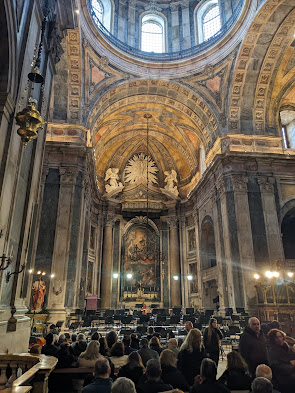Germany: Three Nights, Three Orchestras
I just returned from a musical journey in Germany and Austria, starting in Berlin and ending in Vienna, seeing three symphonic concerts and two operas over one week. I'll review the operas next week, but will start with the symphonies. My satisfaction with these concerts did not align with my a priori expectations. This is a good thing, and one reason why it is fun to see live music. Otherwise, you could just sit at home with your perfect digital performances. First up was the Berlin Philharmonic playing in their home Philharmonie under guest conductor Andris Nelsons, the Latvian maestro who heads both the Boston Symphony and Leipzig Gewandhaus orchestras. The orchestra sounded as great as expected, with particularly delicious woodwind solos in the Beethoven Fourth Symphony. This is not a titanic piece, but Nelsons and the orchestra performed it with a nice mix of virtuosity and classical restraint. Less interesting were the Richard Strauss tone poem Don Juan and the c...

